Related Research Articles
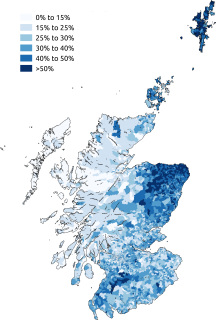
Scots is a West Germanic language variety spoken in Scotland and parts of Ulster in the north of Ireland. It is sometimes called Lowland Scots or Broad Scots to distinguish it from Scottish Gaelic, the Goidelic Celtic language that was historically restricted to most of the Highlands, the Hebrides and Galloway after the 16th century. Modern Scots is a sister language of Modern English, as the two diverged independently from the same source: Early Middle English (1150–1300).
Scottish English is the set of varieties of the English language spoken in Scotland. The transregional, standardised variety is called Scottish Standard English or Standard Scottish English (SSE). Scottish Standard English may be defined as "the characteristic speech of the professional class [in Scotland] and the accepted norm in schools". IETF language tag for "Scottish Standard English" is en-scotland.

The history of the Scots language refers to how Anglic varieties spoken in parts of Scotland developed into modern Scots.

John Christopher Wells is a British phonetician and Esperantist. Wells is a professor emeritus at University College London, where until his retirement in 2006 he held the departmental chair in phonetics.
Dialectology is the scientific study of linguistic dialect, a sub-field of sociolinguistics. It studies variations in language based primarily on geographic distribution and their associated features. Dialectology treats such topics as divergence of two local dialects from a common ancestor and synchronic variation.
Heinz Joachim Giegerich is a Scottish linguist of German nationality, and Emeritus Professor of English Linguistics in the School of Philosophy, Psychology and Language Science of the University of Edinburgh, Scotland.
Prof Kenneth Hurlstone Jackson CBE FRSE FSA DLitt was an English linguist and a translator who specialised in the Celtic languages. He demonstrated how the text of the Ulster Cycle of tales, written circa AD 1100, preserves an oral tradition originating some six centuries earlier and reflects Celtic Irish society of the third and fourth century AD. His Celtic Miscellany is a popular standard.
In English phonology, t-glottalization or t-glottalling is a sound change in certain English dialects and accents that causes the phoneme to be pronounced as the glottal stop (listen) in certain positions, particularly in accents of the United Kingdom. It is never universal, especially in careful speech, and it most often alternates with other allophones of such as [t] (help·info),, ,, or.
In historical linguistics, sister languages are cognate languages; that is, languages that descend from a common ancestral language, their so-called proto-language. Every language in a language family that descends from the same language as the others is a sister to them.
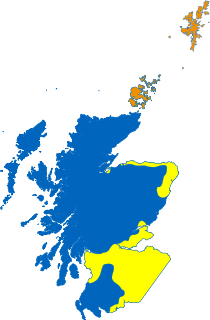
Early Scots was the emerging literary language of the Northern Middle English speaking parts of Scotland in the period before 1450. The northern forms of Middle English descended from Northumbrian Old English. During this period, speakers referred to the language as "English".

The languages of Scotland are the languages spoken or once spoken in Scotland. Each of the numerous languages spoken in Scotland during its recorded linguistic history falls into either the Germanic or Celtic language families. The classification of the Pictish language was once controversial, but it is now generally considered a Celtic language. Today, the main language spoken in Scotland is English, while Scots and Scottish Gaelic are minority languages. The dialect of English spoken in Scotland is referred to as Scottish English.
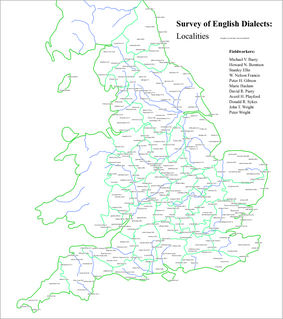
The Survey of English Dialects was undertaken between 1950 and 1961 under the direction of Professor Harold Orton of the English department of the University of Leeds. It aimed to collect the full range of speech in England and Wales before local differences were to disappear. Standardisation of the English language was expected with the post-war increase in social mobility and the spread of the mass media. The project originated in discussions between Professor Orton and Professor Eugen Dieth of the University of Zurich about the desirability of producing a linguistic atlas of England in 1946, and a questionnaire containing 1,300 questions was devised between 1947 and 1952.
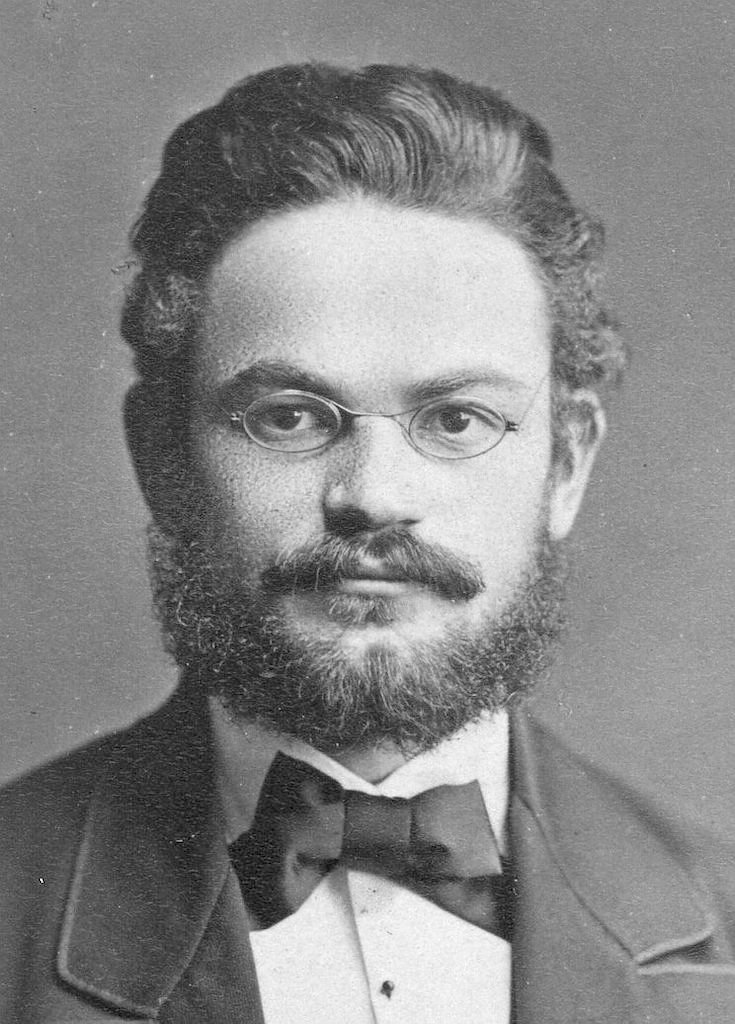
Georg Wenker was a German linguist who began documenting German dialect geography during the late nineteenth century. He is considered a pioneer in this field and contributed several groundbreaking publications, most notably, the Deutscher Sprachatlas.
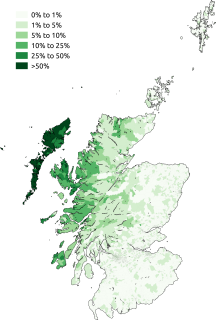
There is no standard variety of Scottish Gaelic; although statements below are about all or most dialects, the north-western dialects are discussed more than others as they represent the majority of speakers.
The history of Scottish Gaelic dictionaries goes back to the early 17th century. The high-point of Gaelic dictionary production was in the first half of the 19th century, as yet unrivalled even by modern developments in the late 20th and early 21st century. The majority of dictionaries published to date have been Gaelic to English dictionaries.

The Scottish people or Scots are a nation and ethnic group native to Scotland. Historically, they emerged from an amalgamation of two Celtic-speaking peoples, the Picts and Gaels, who founded the Kingdom of Scotland in the 9th century. Pictish-Gaels were then displaced by Viking settlers to the north and west, who in turn became Norse-Gaels, and, becoming Gaelicised by the 13th century, left a Norse legacy in places such as the Hebrides.
A Linguistic Atlas of Early Middle English (LAEME) is a digital, corpus-driven, historical dialect resource for Early Middle English (1150–1325). LAEME combines a searchable Corpus of Tagged Texts (CTT), an Index of Sources, and dot maps showing the distribution of textual dialect features. LAEME is headed by the University of Edinburgh's Margaret Laing, and includes contributions from Roger Lass, and web-scripts by Keith Williamson, Vasilis Karaiskos and Sherrylyn Branchaw.
Robert John Gregg, known as Bob Gregg or R. J. Gregg, was a linguist, a pioneer of the academic study of Ulster-Scots as well as a linguistic authority on Canadian English.
The Atlas Linguarum Europae is a linguistic atlas project launched in 1970 with the help of Unesco, and published from 1975 to 2007. The ALE used its own phonetic transcription system, based on the International Phonetic Alphabet with some modifications. It covers six language families present on the European continent: Altaic, Basque, Indo-European, Caucasian, Semitic and Uralic; these families are divided into 22 linguistic groups comprising 90 languages and dialects. The data were collected in 2631 localities. The members of the ALE project are organized into 47 national committees and 4 committees for minority languages.
Angus Mcintosh, was a British linguist and academic, specialising in historical linguistics.